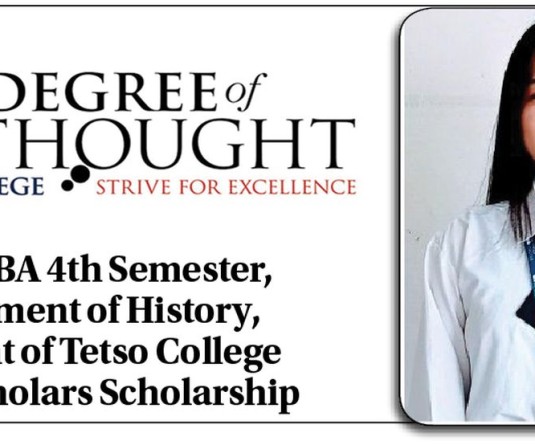
Humanity, often defined as compassion, kindness and benevolence towards others has been a fundamental aspect of human nature and culture since ancient times. However, over the ages, humanity and its practice appears to be on the decline leading us to ponder on the question "Is this the end of humanity?” The priorities of people, nowadays, seem to revolve around wearing expensive perfumes and taking luxurious vacations rather than espousing the values of compassion and empathy. Sure, the privileged and the elite in society go around feeding the poor as charity and also stress on themes of loving and helping a fellow human but all these, sadly, remain at the level of theory rather than translating into actual practice. People nowadays find it much easier to laugh at someone's pain and misery rather than offer genuine help. But why does this seem to be the case? Perhaps the fast-paced and competitive nature of modern society has led to a decrease in empathy and a greater emphasis on personal gain or the abundance of technology and information has led to people feeling overwhelmed and disconnected from one another. The sense of community that people enjoyed might soon become a thing of the past; there is a lack of oneness which ultimately leads to an erosion and loss of compassion. Even if there is a sense of oneness, we as people still decide who we want to project our compassion towards. If an individual belongs to a different race, religion or gender we show hostility instead of hospitality.
Favoured kindness and compassion is also a thing of this century. This is an act of kindness a person performs towards someone who they think deserves that kindness or with a motive of getting something in return. There is nothing wrong in hoping for something in return because as the saying goes “kindness is always rewarded.” But it is necessary to note that kindness should be performed with a selfless feeling and with a desire to affect genuine change. It should have no hidden motives or agenda which becomes essential because it enables the building of trust and faith in one another. Favoured kindness and compassion only hinders relationships but selfless kindness and compassion strengthens bonds between fellow humans.
Social media has become our new found emotional response to any situation. A person might be on the verge of death but instead of showing empathy our hands grab our smartphones and we start recording. Although it does sound a little dramatic or even bizarre, unfortunately it is the truth, and sadly, we ourselves seem to have normalised this. We need to see beyond our phone screens and look at the real world to break this insane spell. People often click pictures voicing their support for a certain cause and while this does help in the context of the cause reaching more people but in reality, everything stays stagnant. A “like” or a “comment” or a “re-share” will not change anything, it never has and it never will. To actually change something, one requires an action in reality. So, if a person is suffering, we should reach out and help, not just through social media but through actual actions that affect real change.
Online platforms have become a vital resource for humans in the 21st century where compassion and kindness can be expressed through a “heart emoji.” It is necessary to discuss as to how online platforms have contributed to the decline of actual humanity. On these platforms, it is easy for people to hide behind their screens and forgo the kind of face-to-face interactions that foster empathy and compassion. Additionally, the constant bombardment of news, information, opinions, and images can make it difficult for people to be fully present and engage with the world around them. Therefore, it is important to take the time to connect with people, to be mindful of our interactions, and to practice acts of kindness and compassion, even in small ways.
Humanity dying is not a new thing but it has become more vivid in the 21st century and a variety of examples can be stated. The increasing political polarisation and division amongst people often fuelled by misinformation and propaganda igniting flames of hatred is a classic example. People are increasingly focused on themselves or their own self-interest rather than on the common collective good of a society. The trust in fellow human is also dying. There is a decrease in public trust - in institutions and systems that are meant to protect and serve the public interest. All these issues are created by us and it is we who are at fault. It is our mindless ignorance and also our use of the common term "chill out" which has done a lot of irreversible damage. In pursuit of "chilling out" and minding our own business, we actually have become selfish savages of the 21st century. While it is a very concerning matter, we must not give up or lose hope. It is not an impossible task to foster kindness and compassion in our lives again. To reignite peace among ourselves, we must sow the seeds of empathy, kindness, and compassion back into the world. This will require a concerted effort and through practices such as mindfulness and genuine gratitude, the cultivation of a greater sense of awareness and appreciation for each other will be attainable. A small act of kindness will eventually cause a butterfly effect - all it takes is for us is to show empathy towards others who are suffering or having a tough time. It is important to remember that humanity is not a lost cause and that people can still practice acts of kindness and compassion in the 21st century. By ensuring sensitivity for another fellow being - be it a friend, a relative, colleague or a stranger, the hope remains. Small gestures can make a big difference, and by prioritising empathy and human connection, people can help bring more compassion back into the world..
The Degree of Thought Column is a weekly community column initiated by Tetso College in partnership with The Morung Express. The column explored contemporary social, cultural, political, and educational issues and challenges around us. However, the views expressed here do not reflect the opinion of the institution. Tetso College is a NAAC-accredited, UCG-recognized Commerce and Arts college. Currently, the Degree of Thought Column is managed by the department of Mass Communication, and the editorial team are Dr Jenny Lalmuanpuii, KC Gabriela and Rinsit Sareo. For feedback or comments, please email:dot@tetsocollege.org.






